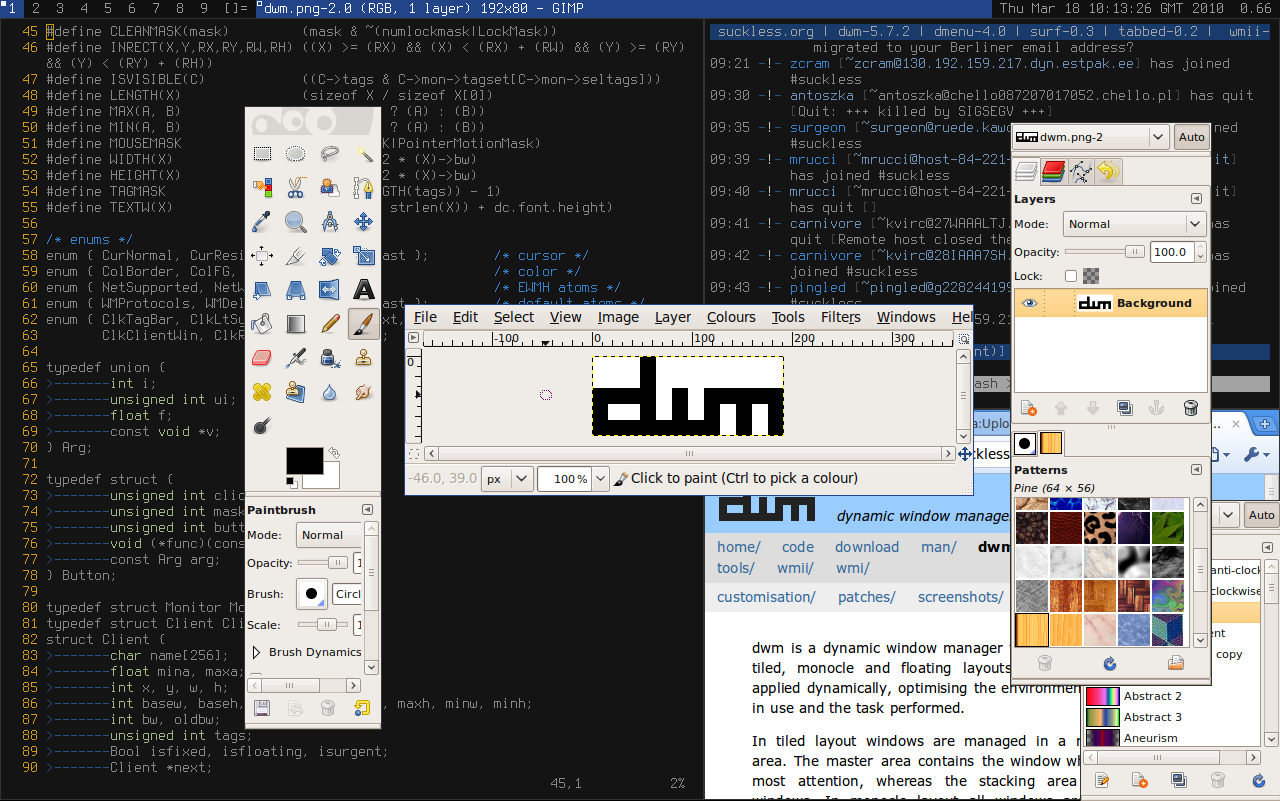What is suckless software?

The Zen of Computing: Exploring the Philosophy Behind Suckless Software⌗
Introduction⌗
Greetings fellow tech enthusiasts! Today, we’re delving into the world of computing minimalism and the philosophy behind “suckless” software. If you’re tired of bloated, complex programs that seem to do everything but the kitchen sink, you’re in for a treat. Let’s explore the philosophy that drives the creation of software that doesn’t suck.
What is Suckless Software?⌗
“Suckless” is more than just a quirky name; it’s a mindset, a rebellion against the bloat and complexity that often plagues modern software. The creators of suckless software believe that programs should do one thing well, without unnecessary features or excessive code. The essence lies in simplicity, clarity, and minimalism.
The Suckless Philosophy⌗
-
Do One Thing, Do It Well (DTT/DIW): At the core of suckless philosophy is the idea that a program should have a single purpose and execute it flawlessly. This principle encourages developers to focus on creating tools that excel in their specific functions rather than attempting to be an all-in-one solution.
-
Keep It Simple: Complexity is the enemy. Suckless software embraces simplicity in both design and functionality. The source code should be clean, easy to understand, and free from unnecessary embellishments. This simplicity not only makes the software more maintainable but also reduces the likelihood of bugs.
-
Transparency and Understandability: The source code of suckless software is expected to be transparent and easy to comprehend. This philosophy promotes a culture where developers can readily understand the inner workings of the software, encouraging collaboration and learning.
-
User Empowerment: Suckless software places a premium on user control and configurability. Users are encouraged to tweak and customize the software to suit their needs. This not only enhances the user experience but also fosters a sense of ownership and empowerment.
-
Reject Unnecessary Complexity: The suckless philosophy is a rebellion against unnecessary complexity. If a feature doesn’t significantly enhance the primary functionality of the software, it’s better left out. This rejection of complexity leads to software that is lightweight, efficient, and easy to maintain.
Examples of Suckless Software⌗
-
st - Simple Terminal: A minimalistic terminal emulator designed to do just one thing – emulate a terminal. It’s fast, efficient, and doesn’t burden the user with unnecessary features.
-
dwm - Dynamic Window Manager: A tiling window manager that adheres to the principles of simplicity and minimalism. It manages windows efficiently without unnecessary frills.
Conclusion⌗
In a world where software seems to grow more complex by the day, the suckless philosophy stands as a refreshing and rebellious approach. It reminds us that elegance and efficiency can coexist, and that sometimes, less truly is more. So, the next time you find yourself wrestling with feature-packed software, consider the wisdom of suckless – and revel in the simplicity of computing zen. Happy coding!